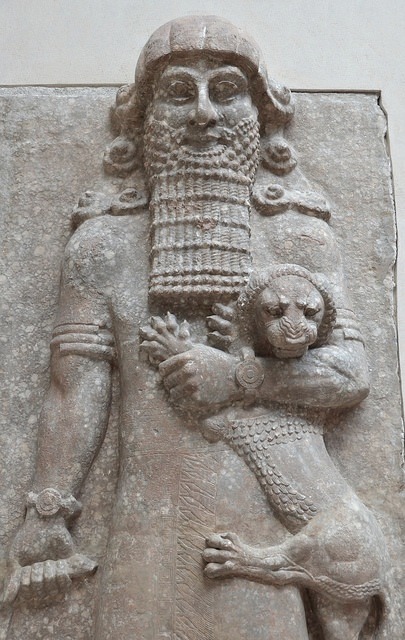From Papyrus to Pixels, a look at the book from The Economist
I didn't write this one, but think it's worth sharing. If you're a writer or a book lover this article from The Economist is right up your alley.
This essay includes a short history of the book, and explores the state of publishing today as the digital transformation is well underway. The popular fear often touted in the media is that the eBook will kill the print book. Evidence shows this is not happening to the extent expected by doomcasters.
The often expressed fear of self-publishing is also tackled: it seem that self-publshing is actually the earliest form of publishing: at one time all books were self-published. What we think of as mainstream publishing came along somewhat later. The self-publisher is returning to a great and honorable tradition of yesteryear, with the added benefit that he no longer needs to direct buyers to his house in order to purchase his new book.
The fear that "with everyone on the planet writing a book, literature will go straight to hell in a handbasket" is another misconception tackled by The Economist. The first fellow to voice this complaint did so in 1471, and for over 500 years neither literature nor the world has ended. Perhaps we're safe.
Click on the red book cover to link through to the article. You can also listen to it as an audio-article or read it in scroll form.
Vivat en libro!
Eulogy for Nigel, a black cat
Nigel in 2005 with tabby Oscar, enjoying the outdoors.
by Karen Newcombe
Most cats don't get a eulogy. Nigel's random luck is that he fell in with a writer. We're not supposed to write about cats or dogs unless it's a scientific study or a children's book. Even Joy Adamson's magnificent book about life among Africa's lions, Born Free, has been relegated to the children's section as though it is somehow not worthy of adult attention. Millions of people have cats, dogs and other animals as family members or as part of their working team if they live in the country. Our society is full of cars named for animals, teams named for animals, a whole raft of spiritual paraphernalia based on animal powers and spirits, clothing that imitates animals' markings. We may feel removed from the animal world, but the men and women who first sketched the closely-observed bison and owls, horses and lions on the walls of Chauvet Cave 32,000 years ago knew how deeply entwined we are with the animals we eat and wear, and live alongside. That basic condition of life has not changed.
So my life became entwined with Nigel's.
He was found by a friend of a friend of a friend whose name I don't know, a kitten crying between two cars in the gutter on Valencia Street in San Francisco. He was carried home, but was so active and demanding that he was quickly handed off to a second person. That person tried to control his demands and nighttime wakefulness by locking him in the bathroom. Nigel hated doors for the rest of his life.
Required Reading: The Hero With a Thousand Faces

by Karen Newcombe
This year marks the 65th since the first publication of Joseph Campbell's great masterpiece, The Hero With a Thousand Faces.
It has been at least ten years since I've read Hero, perhaps longer, but the value of this marvel has not diminished one bit.
Every writer should spend the time needed to read and digest this book thoroughly, because every story you ever write will be enriched by what you learn here.
Campbell's life work was to study the mythologies and religions of all cultures and seek the common threads that lend meaning to civilization on the grand scale, and individual lives at the human level. His body of work is vast and I don't intend to delve into it here. I simply want to discuss what I find valuable as a writer in this one book.
The main points of Hero are that every worthwhile story contains some or all elements of the great myth. Campbell identified a roster of common elements among the world's mythologies, and speaks of them as the monomyth – the great human mythology that is present in every culture.
In this cycle, the hero (or heroine) is called to adventure, sometimes by a mystical means, sometimes simply by chance. The hero may reject the call, but it will continue to make itself felt until there is no choice but to accept the challenge. The hero passes out of his normal life and sets out on a journey. Along the way he is aided by mystical beings and challenged by monsters, elements, gods, and enemies. Ultimately he must plunge into the deepest, darkest and most desperate place, there to either triumph or fail. Sometimes he or she actually dies, and must be brought back to life.
Review: Write Your Novel From the Middle by James Scott Bell

by Karen Newcombe
James Scott Bell offers some of the most useful advice to be found in any books about the craft of writing.
His most recent book on writing, Write Your Novel From the Middle, is the first writing book I've read, out of many dozens, to look directly at what's happening at the midpoint of a story. Most books on the craft of writing make it clear that Important Things happen at the midpoint: this is where the plot turns inevitably towards the conclusion. But what exactly is going on?
To find out, Bell started opening books to their center to look firsthand. What he found was more than just a turning point in the plot. The midpoint of the book is what Bell terms "a look in the mirror", where the main character has to stop and take stock of him or herself: Am I really this kind of person? What must I become in order to overcome these challenges?
Notice these questions are not about what must I do but who must I become.
This is the moment when the character realizes that he or she must dig down inside and undergo a personal change in order to move forward. In a plot driven book this may be when a fateful decision is made by the hero that will drive the action for the rest of the story.
Give it a try.
Pride and Prejudice: In the middle of the book, which falls in Chapter 36, Elizabeth receives a letter from Darcy, whom she has just vehemently rejected in Chapter 34. Darcy's letter is electrifying, revealing to Elizabeth how poorly her prejudices have served her. "How despicably I have acted!...I could not have been more wretchedly blind!...Till this moment I never knew myself."
Feed Your Craft

by Karen Newcombe
Writing is a craft. Every craft has tools, and every tool requires experience and practice to use. Fortunately, at this point in history, there are more resources available for writers than ever before. Many writers who have mastered their craft are eager to help the rest of us develop and hone our skills. We can benefit from their hard work and knowledge and bypass some of the thousands of hours that mastery of any craft requires. Books about writing, workshops and classes, book festivals, and YouTube videos are now abundant. Hundreds of writers’ websites share how they have solved thousands of writing challenges. Dive in!
The more you understand, the more competent you will be at using your tools. The more you practice, the better you’ll handle them, and the better your writing will become.
Read every book and article about writing you can get your hands on. Many of them are excellent, offering practical insights into building a plot, creating conflict, handling multiple viewpoints, or designing a great sonnet.
Some books offer an inside look at specific genres. Every so often an innovator turns up who can jump start a genre and drive it off in a new direction, but you can’t do that if you don’t have a solid feel for how and why that genre works so well already. I don’t care if you’re writing elegant literary fiction or sizzling hot erotica, you need to understand what sets that type of writing apart from the others.